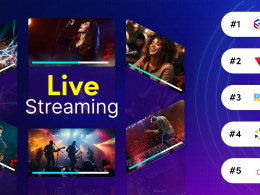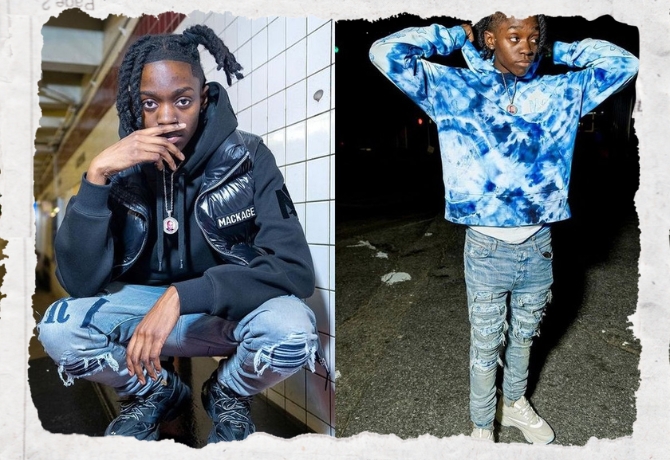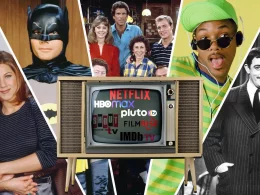Introduction
Music festivals have become a central part of the cultural landscape, drawing millions of fans each year. As we look toward the future, it’s crucial to understand the evolving trends that are shaping these vibrant events. From technological advancements to shifting audience preferences, the music festival experience is changing in exciting ways. Here are eight key trends that are redefining the future of music festivals.
Top Music Festivals Trends
Music festivals have always been important for cultural expression, bringing together people to celebrate music, art, and community. Looking ahead, several key trends are changing how these festivals are organized and experienced. Here are eight important trends that will reshape the festival scene.
1. Focus on Sustainability
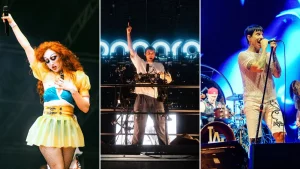
A major trend in music festivals is the increased focus on sustainability. As more people become aware of environmental issues, festival organizers are working to lessen their impact on the planet. This includes reducing waste, using renewable energy, and encouraging attendees to adopt eco-friendly practices. Festivals like Glastonbury and Bonnaroo are leading the way with plans for recycling, composting, and using biodegradable materials.
2. Use of Technology

Technology is playing a bigger role in enhancing festival experiences. From virtual reality (VR) and augmented reality (AR) to cashless payment systems and mobile apps, technology is changing how attendees interact with festivals. These innovations make operations smoother and offer new ways for fans to connect with artists and each other.
3. Diverse Lineups

There’s a noticeable shift towards more diverse and inclusive festival lineups. Organizers are making an effort to feature artists from different genres, cultures, and backgrounds. This trend aims to appeal to a wider audience and reflect the diverse tastes of music fans. By showcasing a variety of artists, festivals are creating more inclusive environments that celebrate global music culture.
4. Emphasis on Wellness

As the wellness movement grows, music festivals are adding wellness activities to their programs. From yoga and meditation sessions to healthy food options and mental health resources, festivals are focusing on the well-being of their attendees. This trend highlights the importance of mental and physical health in creating a positive festival experience.
5. Rise of Boutique Festivals
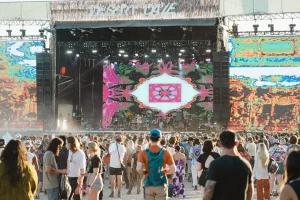
While large festivals continue to attract huge crowds, there’s a growing interest in boutique festivals that offer more intimate and curated experiences. These smaller festivals often focus on specific genres or themes and provide a more personal experience for attendees. Boutique festivals are popular for their unique settings, exclusive performances, and chances to connect with artists and fellow fans.
6. Increased Accessibility

Accessibility is becoming a key concern for festival organizers, who want to make events more inclusive for people with disabilities. This includes providing accessible facilities, offering sign language interpreters, and ensuring that festival grounds are easy to navigate for those with mobility challenges. By prioritizing accessibility, festivals are creating more welcoming environments for everyone.
7. Growth of Virtual Festivals

The COVID-19 pandemic accelerated the rise of virtual music festivals, and this trend is expected to continue. Virtual festivals offer a unique way to reach global audiences and allow those who can’t attend in person to participate. With improvements in streaming technology and virtual reality, these online events are becoming more engaging, offering a viable alternative to traditional festivals.
8. Community and Cultural Impact

Music festivals are increasingly recognized for their potential to create positive social and cultural change. Many festivals are teaming up with local communities and organizations to support social causes, promote cultural exchange, and boost local economies. This trend shows that festivals can serve as platforms for social change and community building.
Community Involvement

Many music festivals are now focusing on giving back to their communities. Organizers are partnering with local charities and businesses to create a positive impact. This can include donating a portion of ticket sales to local organizations or using local vendors for food and merchandise. By supporting their communities, festivals can create a strong connection with attendees and make the experience even more special.
Comparative Analysis table for the eight key trends in music festivals
| Trend | Description | Key Benefits | Examples | Challenges |
|---|---|---|---|---|
| Focus on Sustainability | Increased efforts to reduce environmental impact through waste reduction, renewable energy, and eco-friendly practices. | Minimizes ecological footprint and promotes environmental awareness. | Glastonbury, Bonnaroo | Implementation costs and logistical challenges. |
| Use of Technology | Incorporation of VR, AR, cashless payments, and mobile apps to enhance festival experiences. | Streamlines operations and enhances attendee engagement. | Coachella, Lollapalooza | Tech glitches and the need for robust infrastructure. |
| Diverse Lineups | More inclusive lineups featuring artists from various genres, cultures, and backgrounds. | Reflects diverse music tastes and fosters inclusivity. | Primavera Sound, Afropunk | Balancing diversity while maintaining quality. |
| Emphasis on Wellness | Inclusion of wellness activities like yoga, meditation, and mental health resources. | Enhances mental and physical health of attendees. | Wanderlust, Wellness Festivals | Ensuring wellness offerings are accessible and varied. |
| Rise of Boutique Festivals | Smaller, curated festivals focusing on specific themes or genres for a more personal experience. | Unique settings and deeper connections with artists and fans. | Desert Daze, 2000trees | Limited capacity may reduce profitability. |
| Increased Accessibility | Enhanced focus on making festivals inclusive for people with disabilities. | Creates welcoming environments and expands audience reach. | Glastonbury, Reading & Leeds | Higher costs for infrastructure improvements. |
| Growth of Virtual Festivals | Virtual events that provide access to global audiences, especially post-COVID. | Broadens audience reach and allows participation from home. | Tomorrowland Around the World | Engagement can be less impactful than in-person. |
| Community and Cultural Impact | Partnerships with local communities to support social causes and promote cultural exchange. | Boosts local economies and fosters social change. | Mercedez-Benz Arena events | Ensuring meaningful engagement with communities. |
Conclusion
In conclusion, the future of music festivals is being shaped by a variety of exciting trends that reflect changing consumer preferences and societal values. From sustainability and technology to diversity and wellness, these trends are redefining the festival experience and paving the way for a more inclusive and innovative future. As these music festivals trends continue to evolve, they will undoubtedly lead to new and exciting possibilities for both organizers and attendees alike.








